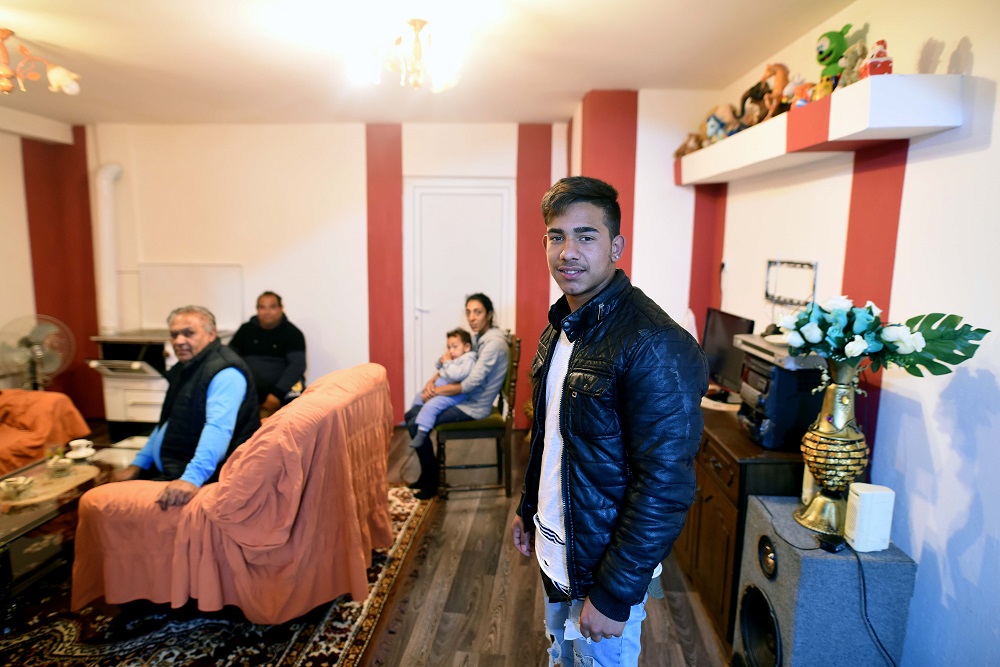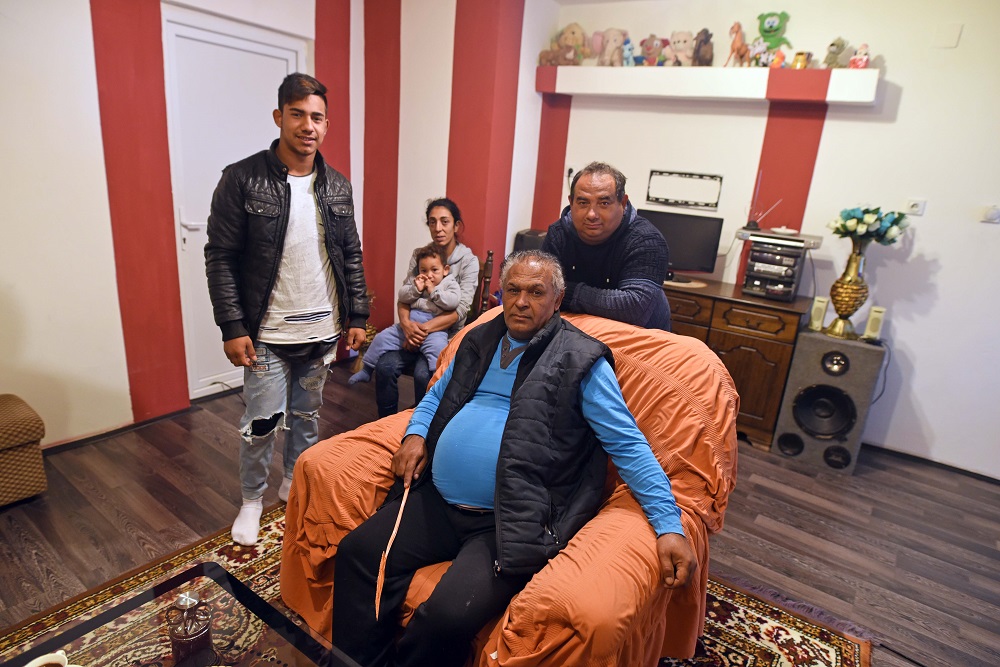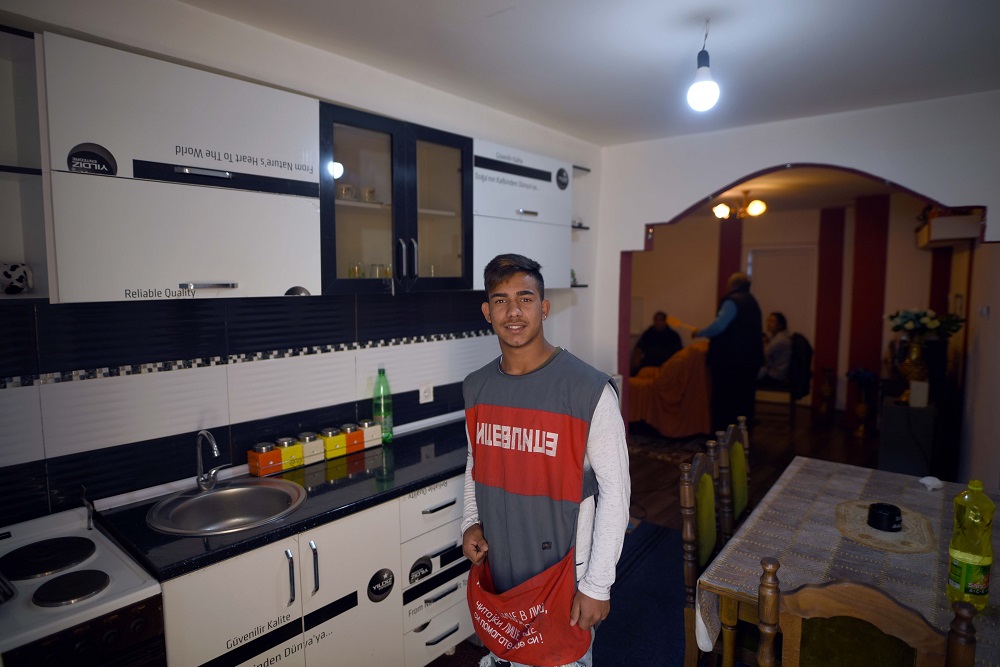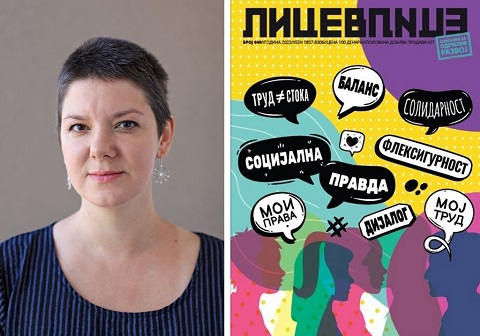A 17-year-old-boy has completed the renovation of the house where he lives with seven members of his family. Tunan Sadik is one of the most successful Lice v Lice vendors and selling the magazine has enabled him to provide better living conditions for himself and his immediate family. Perhaps he told you about that while you were buying a copy of the magazine, but it is more likely that he merely offered you the magazine with a smile and attracted you with his openness, friendliness and politeness.

Last year, we wrote that Tunan was “one of those people who succeed in their lives”. After working as a Lice v Lice vendor for less than a year, Tunan has managed to provide a better living space for himself, his three younger brothers, Redzep, Gabriel and Debran, his mother Alisa, his father Bajram and his grandfather Redzep. Tunan is the breadwinner of the family, although his father Bajram works as a vendor from time to time. “I go out and sell every day,” Tunan tells me. “I enjoy doing it. I don’t even notice that I am working: it is so nice. I leave my home and I head to Debar Maalo [a district of Skopje]. My friends are there, and I am successful because of them.” Tunan says that he even feels like he is a celebrity with whom people like to communicate. “We tease each other: they call me ‘bro’, ‘kin’… I feel good in the company of all those people – I feel as if I were famous. I know that they respect me and support me because I am diligent, and because I really work hard.”
We visit Tunan’s family on a cold but sunny November day. Tunan, who was dressed and ready early in the morning, guides us along a narrow path in Shuto Orizxari [also known as Shutka], one of the ten municipalities that make up Skopje, while explaining that all the vendors live on the same street. There are houses all around us: some of them are dilapidated, without windows and muddy; some are big, with fences around them. There is always someone in the yard or in front of the doors of the shabby houses, but the big houses are empty. “These big ones belong to the people who live in Germany,” Tunan explains. “They come and go. They build and furnish their house and they go back to Germany. They work there.”

Loud music can be heard throughout the neighbourhood. We meet only smiling faces as we walk. I am surprised that poverty cannot destroy the spirit or erase the smiles from people’s faces. “Every morning is the same here: music,” Tunan says. “Everyone listens to loud music first thing in the morning in order to cheer up. It is nice to live in Shutka,” he smiles.
His mother Alisa, smiling and kind, his father Bajram – who is carrying little Debran in his arms – and Tunan’s grandfather Redzep greet us when we reach the family home. “I am the oldest in the family and I take care of the order,” says Redzep. Sitting in the wide armchair while everyone else is standing, he certainly creates the impression that he is the head of the family. “I take care of the finances and make sure that Tunan doesn’t come under bad influences,” he continues. “It is very easy nowadays for a young man to get on the wrong path. Fortunately, he is clever and he knows that I wish him only the best. Although sometimes he can make me nervous,” Redzep says jokingly, his humour undercutting our first impression of him as being a strict man.
The narrow hall, which was draughty last year, has now been turned into a kitchen, with kitchen fittings and a dining table and chairs. The space expands into the living room, which is big enough to be a pleasant place for people of different generations to spend time. The family also has one more room, which is used as a bedroom. The house is warm and clean.
Soon after our arrival, grandfather Redzep offers us waffles, while Alisa places porcelain cups with Turkish coffee on a glass coffee table. While Alisa is breastfeeding the youngest son, she tells us that it is not difficult for her to run the errands in the house. “I like when it is clean and tidy,” she says. “I don’t go to work, so I can do all the errands at home. Tunan is a hard-working child, he really contributes a lot to make us feel good at home.”

Bajram, Tunan’s father, stays silent and waits for us to ask him something. “What can I say?” he asks, “What we achieved with Tunan is a real success. If it wasn’t for Lice v Lice, we would not have been settled like this. Certainly, it is important that he is diligent and that we all listen to the head of the family, my father, who knows what to do.” Redzep adds that they have been saving for nearly two years. “Step by step and we managed to have a new house,” he says. “Tunan has been doing this for more than a year, but before that Bajram was the boss. My task was to save, and they were supposed to earn. We all have our own roles and it is good if it stays like that.”
Redzep explains that they first pay their bills for electricity and other utilities and, after that, he makes sure that they put some money aside. “We regularly pay everything and we do not owe anyone anything,” he says. “It is said that people in Shutka do not pay utility bills, but we regularly pay all the bills and carefully save. We use wood for heating; we don’t use electricity.” Redzep adds that he is in charge of lighting the fire in the stove and for cutting wood, and similar errands.
Later, we visit the home of Sadic, Mahmud and Suhamet. They are Bajram’s cousins and are also Lice v Lice vendors. They all have various appraisals of Tunan’s success. “He goes every day: he does not miss a single day of selling Lice v Lice,” say Suhamey and Mahmud. “We may sometimes skip some day when we don’t feel like working, but it doesn’t happen to Tunan. That is why everyone loves him and why he managed to fix up the house.”
As for Tunan, his plans for the future are to broaden his knowledge. He wants to learn to read and write and to be more successful in what he is doing. “I would like to do this all my life,” he says. “I am good at it. Wait until I learn to read and write – and then you’ll see what kind of house I will build!”
Translated by Nadica Gjosevska




















